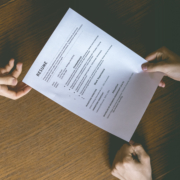Do’s and Don’ts of Writing an Effective Cover Letter
The next time you are searching for a job, make sure you have all your bases covered. In addition to having a strong resume outlining your work experience and qualifications, it’s important to include a cover letter with your application in order to stand apart from the crowd.
A cover letter is meant to give the hiring manager an idea of who you are, why you are interested in the job in question, and why you think you can do the job well. Many people have debated the necessity of cover letters. However, even if the position does not mention including a cover letter, you should get into the habit of writing one for every job anyway. It is an easy way to demonstrate your interest in the position and shows that you have taken some time to reflect on why you think you would be a good fit.
If you have never written a cover letter before, it can seem like a daunting task, but there are a few simple steps to follow that can make the process a little less stressful. Read on for our do’s and don’ts of writing an effective cover letter that will land you an interview!
Do: Research & Personalize
Do as much research on the company and the position as possible, then integrate your findings into the body of your cover letter. If you can, look for the name of the hiring manager. Addressing your cover letter to someone rather than ‘Dear Sir or Madam’ adds a human element to the whole process.
Also, make adjustments to the cover letter for each individual position, like you would when writing your resume. Reference some of the particular requirements listed in the posting. Anything that is too non-specific to the job description will come off as generic and insincere, which is not likely to get you through to the next step of the hiring process.
Do: Grab Their Attention
Hiring managers only look at a resume and cover letter combination for a maximum of 15 seconds, so you have to make every word count. Your opening paragraph should be so compelling that the person reading it will want to keep reading – if you don’t have them hooked by the first few lines, their interest is likely going to decline. Hiring managers have also likely read several cover letters for similar positions before, so they will know a cliché when they see it.
Avoid the classic: ‘I am applying for this job…’ The hiring manager already knows you are applying to the job. Robin Ryan, author of the book Winning Cover Letters, illustrates a formula for writing an opening to your cover letter, called the Power Impact Technique: “begin your letter with a strong opening sentence emphasizing the major selling points and skills that you would bring to the job:
- Analyze the job — both the noted and assumed needs — and determine the most important skills the employer is looking for.
- Immediately address how you will meet the employer’s needs.
This first paragraph is what they will read so it needs to have your strongest selling points in it.”
Don’t: Paraphrase Your Resume
Keep in mind that your cover letter is not just a paraphrase of your resume. The two documents are naturally going to contain some similar information, but don’t repeat everything they are going to read on the next page. The cover letter is a chance to go into depth and expand on your experience, explaining how you would directly apply it to this position.
For example, in your resume you will list your past work positions. In the cover letter, you can expand on these positions by offering praise you received and goals you met, and how you aim to achieve the same at this new job. You can list some of your volunteer experience in your resume then go into more detail about the valuable skills you learned and how you have applied them to your professional career in the cover letter.

Do: Highlight Your Strengths
When searching for a job, it can be easy to become discouraged if you don’t have very much experience. But don’t undersell yourself: you have a lot to offer, regardless of whether you match every single one of the requirements listed in the job posting. Don’t sell yourself short with lines like ‘Give me a chance’ or ‘I know I don’t have a lot of experience’, because this isn’t something that you want to draw attention to.
Even if you don’t have a ton of experience compared to the competition, you want to focus on the strengths that you do have. Many positions indirectly teach transferable skills, such as teamwork, communication and conflict resolution, that are valuable for nearly all jobs. And don’t be afraid to boast any past achievements and awards that speak to your talents and abilities. The cover letter is a chance to showcase all that you have to offer!
Do: Keep Formatting in Mind
Content aside, there are some basic formatting rules that should be followed when writing a cover letter. Always include your contact information (full name, email address and phone number) on the page, and keep the cover letter itself to around 500 words – any longer, and the reader is likely to lose interest. There are several templates available online if you need some extra guidance!
Always take the time to proofread your documents – several times. Careless typos and grammatical errors will obviously reflect poorly on you. Since this is the first impression your potential future employer will have of you, it has to be as close to perfect as possible.
Don’t: Use Overly Formal, Stiff Language
If you aren’t sure what to say in your cover letter, it can be tempting to try and ‘fancy’ it up with big words and formal language. It isn’t a bad idea to write in a formal style but going overboard can make you sound ingenuine and unnatural, and not like an approachable and comfortable future employee. Try to find a happy medium between overly casual and overly formal language and write how you would speak in a normal professional conversation.
What are some of your cover letter writing do’s and don’ts? We would love to hear them – join the discussion in the comments below!








